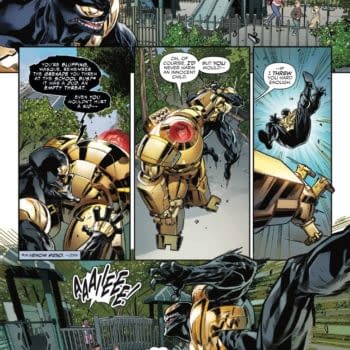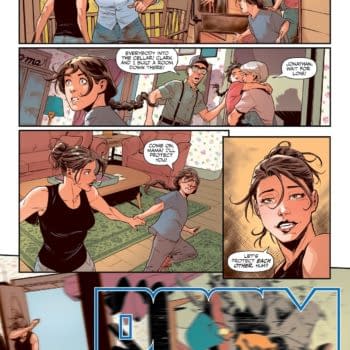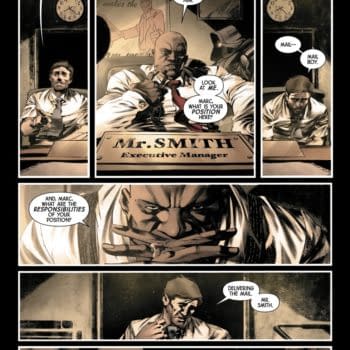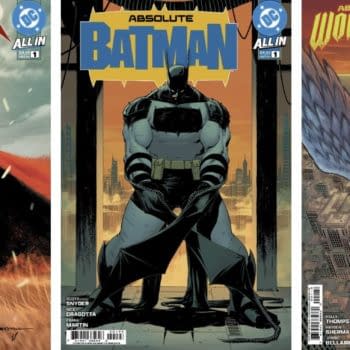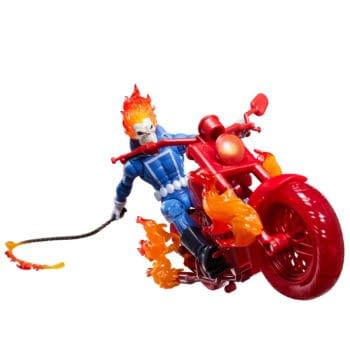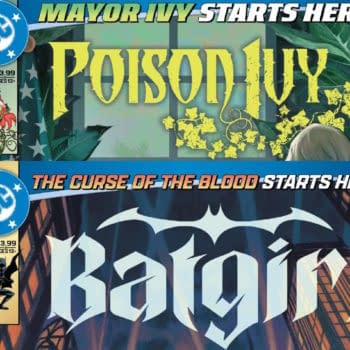Posted in: Comics | Tagged: Avengers vs. X-Men, civil war, civil war 2, Comics, Events, marvel, politics
The Problem With Heroes Vs. Heroes
By Joe Glass

Next week, Civil War II ends, thus ending yet another heroes vs. heroes line-wide mega-event. Of course, we already have Inhumans vs. X-Men to continue the superhero beating up on other superheroes trend.
Aside the obvious fatigue that comes from near constant events pitting superheroes against each other, there is another fundamental problem that pretty much always comes up with these major hero on hero bust-ups.
That, ultimately, it makes heroes no longer, well, heroes anymore.
Now, let's be more specific here. I'm not talking about the age old tradition of superheroes meeting for the first time and getting into a dust up over some misunderstanding. No, rather I am talking about the major events that nearly always, in the Marvel tradition, stem from an ideological difference between heroes. DC's events don't typically follow this 'ideological differences' formula, so largely don't quite have the same effects on the heroes.
Think more like Civil War. Avengers vs X-Men. Civil War II.
So what do I mean by heroes no longer being heroes in these events? Well, nearly every time, despite assurances that both sides will have valid arguments and that neither side is wrong or right, one side inevitable does enter the realm of being wrong. Sometimes either because their viewpoint is just plain wrong OR because their means cannot possibly justify the ends.
So let's look at those three major Hero vs. Hero events shall we?

In Civil War, the argument was essentially about security, and how much freedom can we lose in the name of it. In essence, there are justifiable arguments for both sides, to be sure. However, the Pro-Registration side made some pretty despicable moves: arresting heroes who disagreed with them, cloning their friend who went on to murder another. The actions of Iron Man and Mister Fantastic were pretty much heinous and fascist, and it made it hard to like the heroes, especially Iron Man. In fact, it arguably took a while to get the character back to a likeable position much later and would even involve him essentially erasing his memories of his actions during the Civil War.

In Avengers vs. X-Men, the Avengers basically take it upon themselves to take a teenage girl from her home, by force, because of what MIGHT happen. After all, the Phoenix Force can be a force for good as well as bad. They presume it's nefarious intentions, and target, and unilaterally decide to invade what is, at the time, a sovereign mutant nation and abduct a minor. In fact, as a result of their interference, the Phoenix Force gets split up and enters five unintended hosts, which ultimately goes poorly.
This was the start of the long road of Scott Summers' fall from grace as a hero, even though ultimately it all came down to the interference of the Avengers.

Finally, we all can see where things have gone in the recent Civil War II: Captain Marvel's beloved predictive justice has seen her become nothing more than, again, a well-meaning fascist. The means do not justify the ends, as much as the Captain Marvel book has done a great job of trying to get us to see her motivations and her genuine desire to do what she thinks is right, and through her meddling with forces that no one fully understood, led to the deaths of several heroes and the attempts to arrest heroes and normal people before they're even committed a crime.
What's more, these heroes on heroes conflicts ultimately cause masses of property damage and worse. In the Marvel Universe, it's really hard to see how the average person could even be happy to see a superhero. Surely by now, superheroes are a thing to be feared.
Which, for the audience, is counter to what the heroes are meant to be. Heroes are meant to be characters to aspire to. Figures of hope. Instead, readers now wait to see what new difference of opinion starts a war and turns which beloved hero into a bad guy.
But also, there is another aspect.
With heroes apparently unable to work together despite differences in ideology, is this not another contribution to the us vs. them discourse that has become a part of our social and political lives of late.
Surely, our heroes should be able to rise above ideological differences to work together for the better good, even if they don't always agree with each other. Instead, they squabble, destroy buildings, make the people fear them.
Maybe that is the one use for these conflicts: illustrating the dangers of the divisive discourse that has become a part of our every day lives; but perhaps now is the time to bring that to light.
Joe Glass is a Bleeding Cool contributor and comics creator. He is the writer of LGBTQ supehero team series, The Pride, which is available here and on ComiXology.











